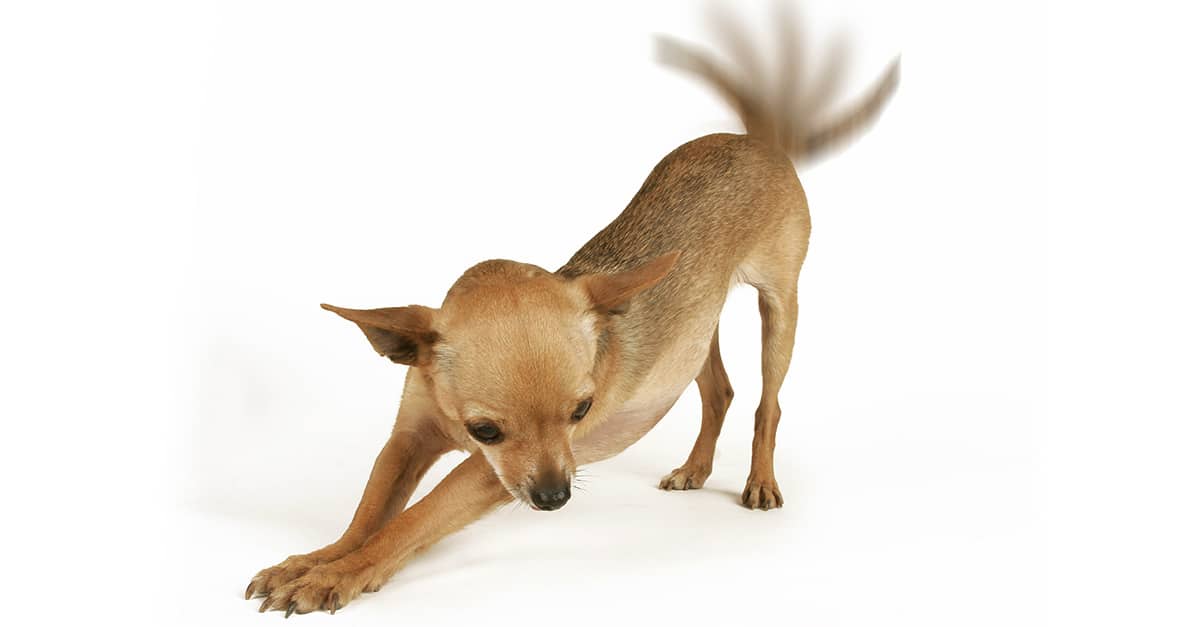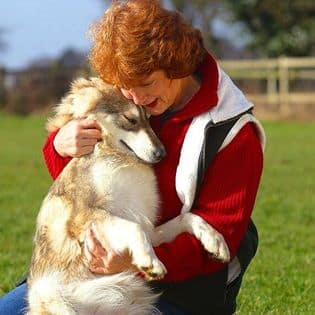
93 Tytton Lane East, Wyberton, Boston, Lincolnshire, PE21 7TD
+44 (0) 1205 619055
info@janfennellthedoglistener.com
Registered in England No. 6623023, VAT No. 971430917
Home / The Wagging Tail

During one of our recent ‘Foundation Courses’ the question about the significance of a dog wagging its tail came up again, a signal which can often be misunderstood. The common mistake is assuming that the wagging tail is a sign of a friendly, happy mood, even an invitation to play,
Knowing the truth; that a wagging tail is just an indication of heightened excitement, will help owners avoid problems in trying to keep their dogs happy and safe when encountering other dogs. Dogs have been seen wagging their tails just before they fight and in the same way a playing dog can often have its hackles raised, a sign normally seen as aggression. Both signals only indicate heightened emotion, whether good and bad
When walking your dog and meeting others, wagging tails do not necessarily mean all is well. If you are completely happy that your dog is in no danger and is not a danger to others, then all should be fine but, if there is any doubt at all then put your dog on a slip lead. Interpreting body language correctly will help you protect your dog from others and itself.
Watch carefully the signals from dogs when meeting. If the dogs stand side by side, even sniff one another then that is fine but if one of the dogs, even if it is yours, places its head over the other then I suggest that both owners quietly place the dogs back on lead and either walk together, as relaxed as possible or go your separate ways. Safety first.
Sincerely,
JanF




93 Tytton Lane East, Wyberton, Boston, Lincolnshire, PE21 7TD
+44 (0) 1205 619055
info@janfennellthedoglistener.com
Registered in England No. 6623023, VAT No. 971430917
© 2022 Jan Fennell International Dog Listeners Ltd.
| Cookie | Duration | Description |
|---|---|---|
| cookielawinfo-checkbox-analytics | 11 months | This cookie is set by GDPR Cookie Consent plugin. The cookie is used to store the user consent for the cookies in the category "Analytics". |
| cookielawinfo-checkbox-functional | 11 months | The cookie is set by GDPR cookie consent to record the user consent for the cookies in the category "Functional". |
| cookielawinfo-checkbox-necessary | 11 months | This cookie is set by GDPR Cookie Consent plugin. The cookies is used to store the user consent for the cookies in the category "Necessary". |
| cookielawinfo-checkbox-others | 11 months | This cookie is set by GDPR Cookie Consent plugin. The cookie is used to store the user consent for the cookies in the category "Other. |
| cookielawinfo-checkbox-performance | 11 months | This cookie is set by GDPR Cookie Consent plugin. The cookie is used to store the user consent for the cookies in the category "Performance". |
| viewed_cookie_policy | 11 months | The cookie is set by the GDPR Cookie Consent plugin and is used to store whether or not user has consented to the use of cookies. It does not store any personal data. |